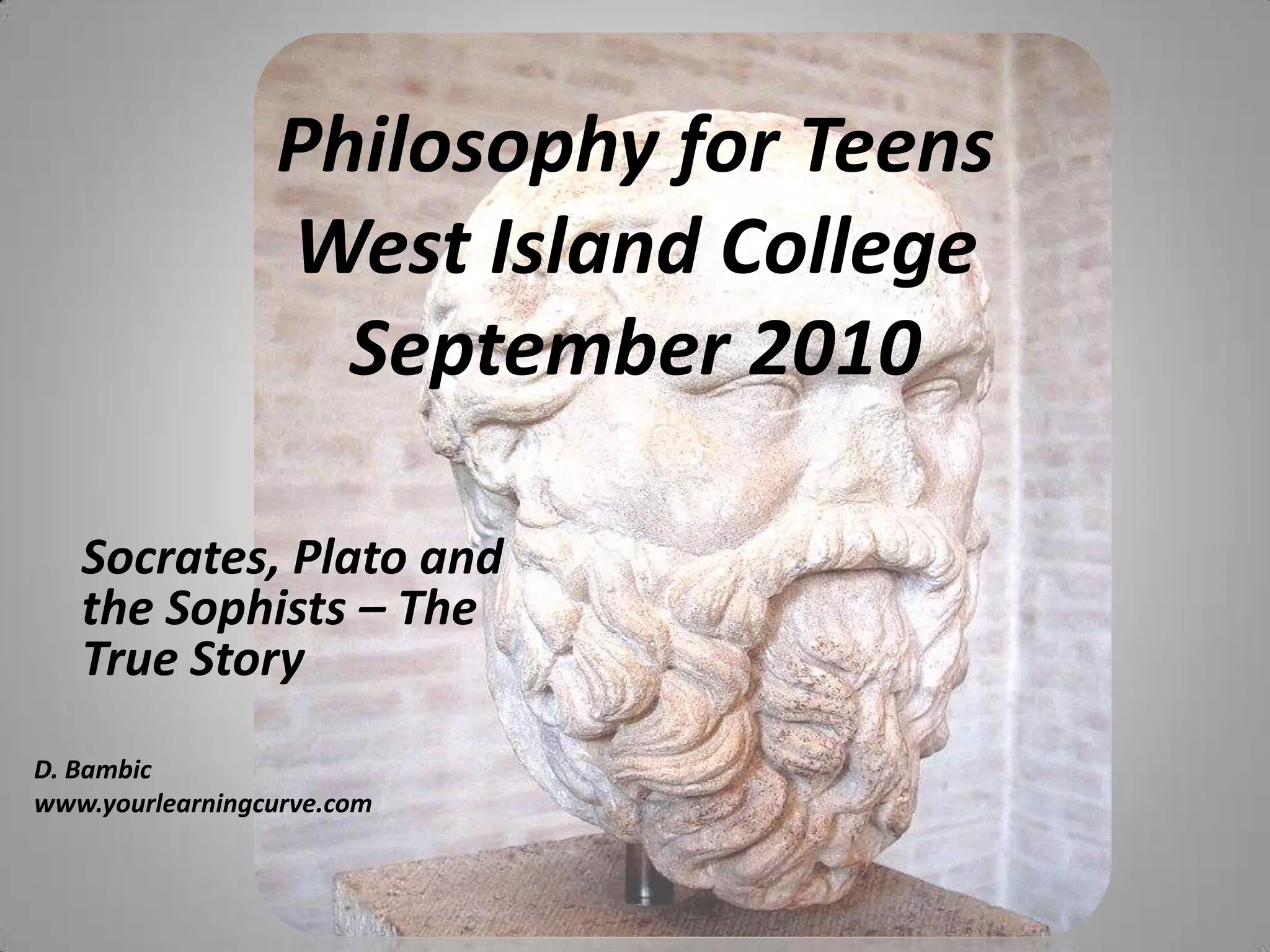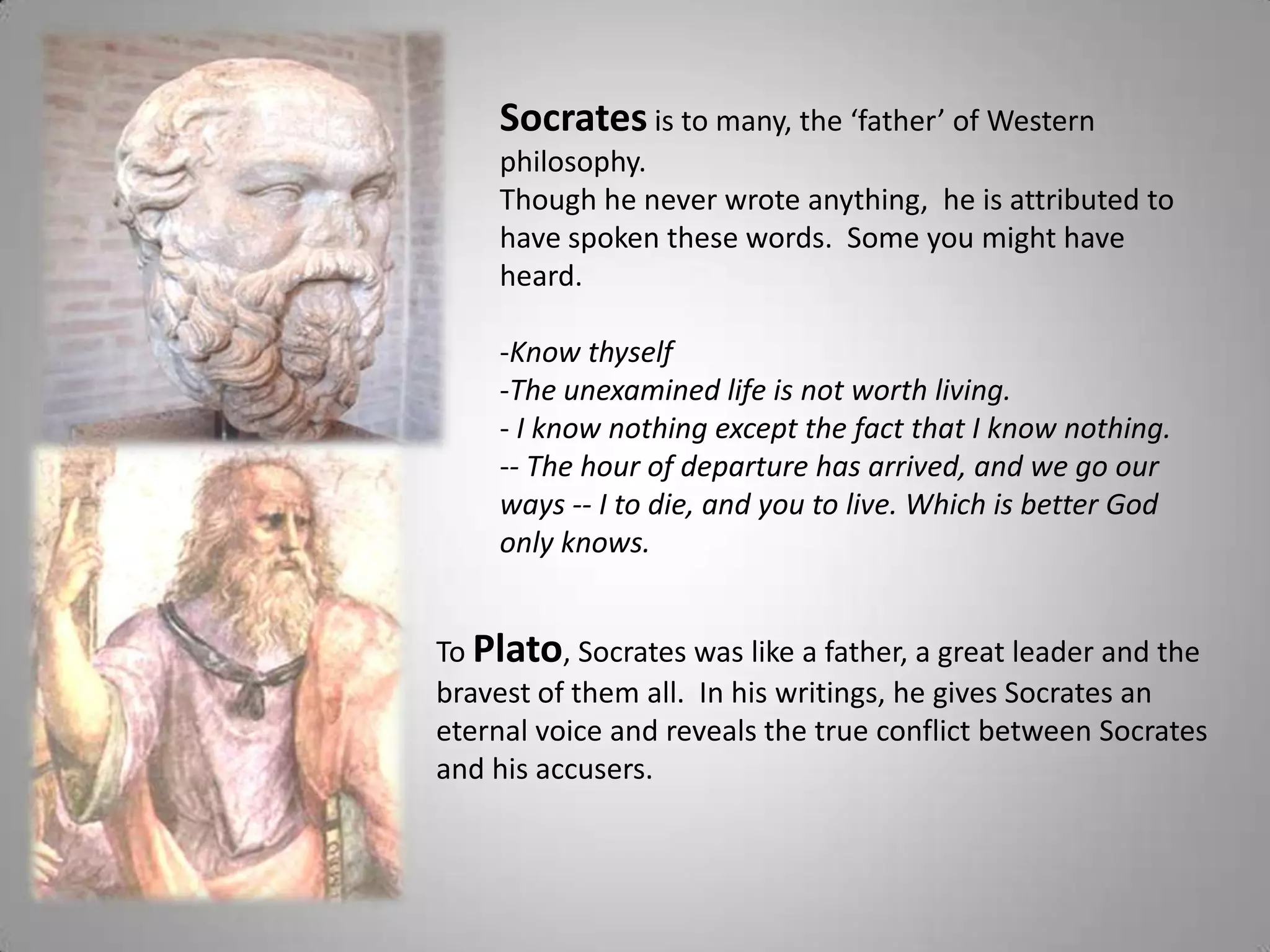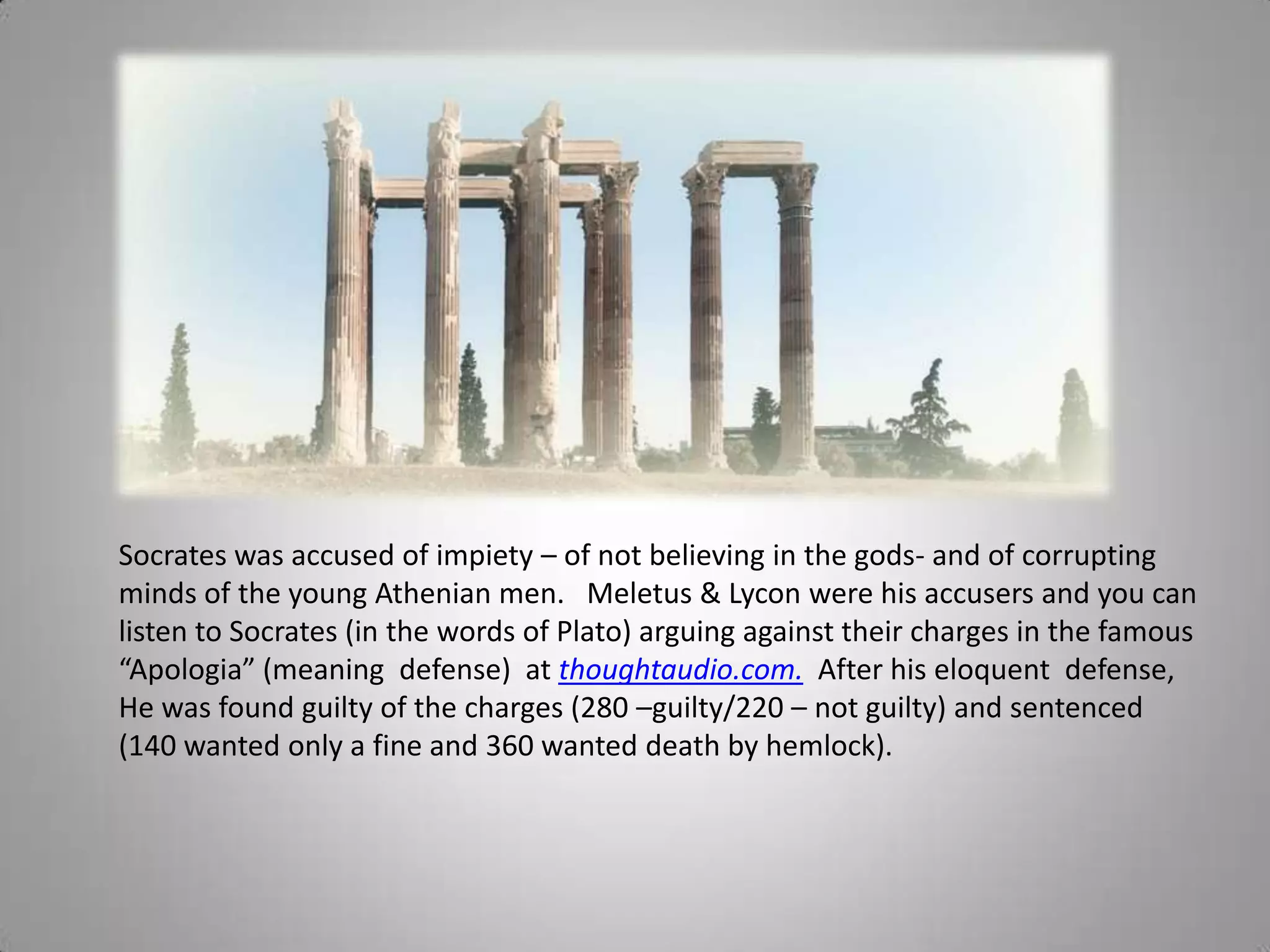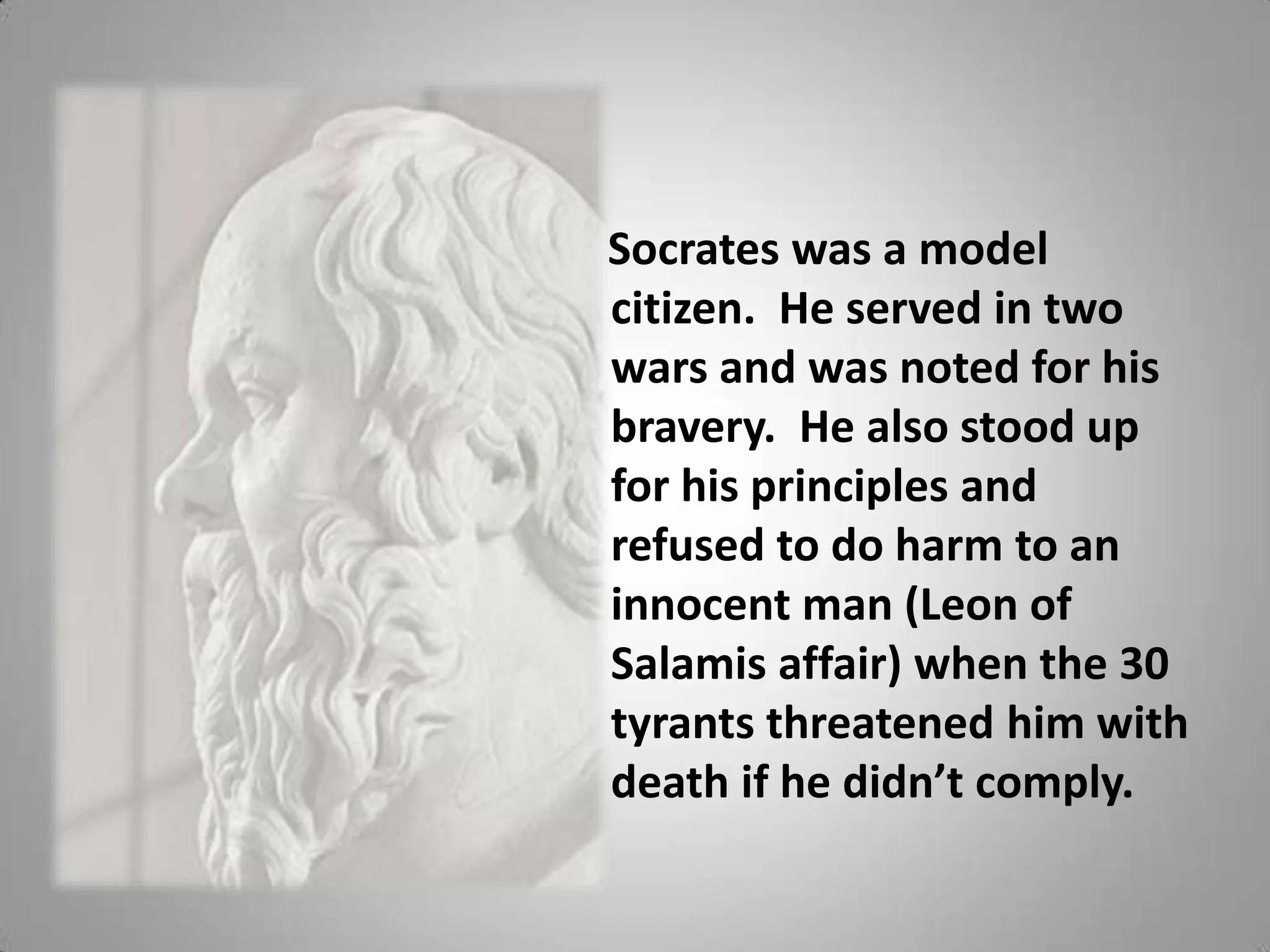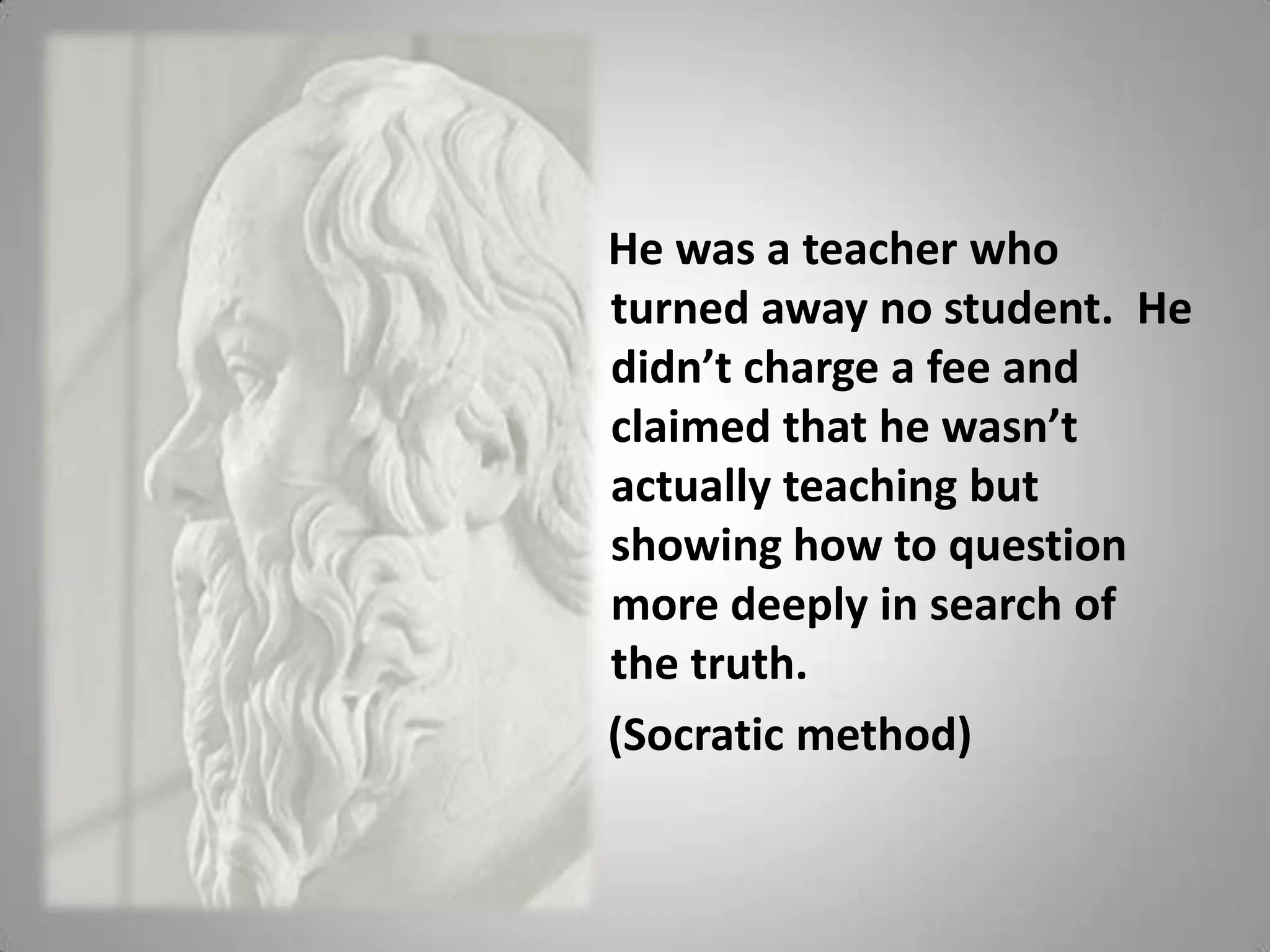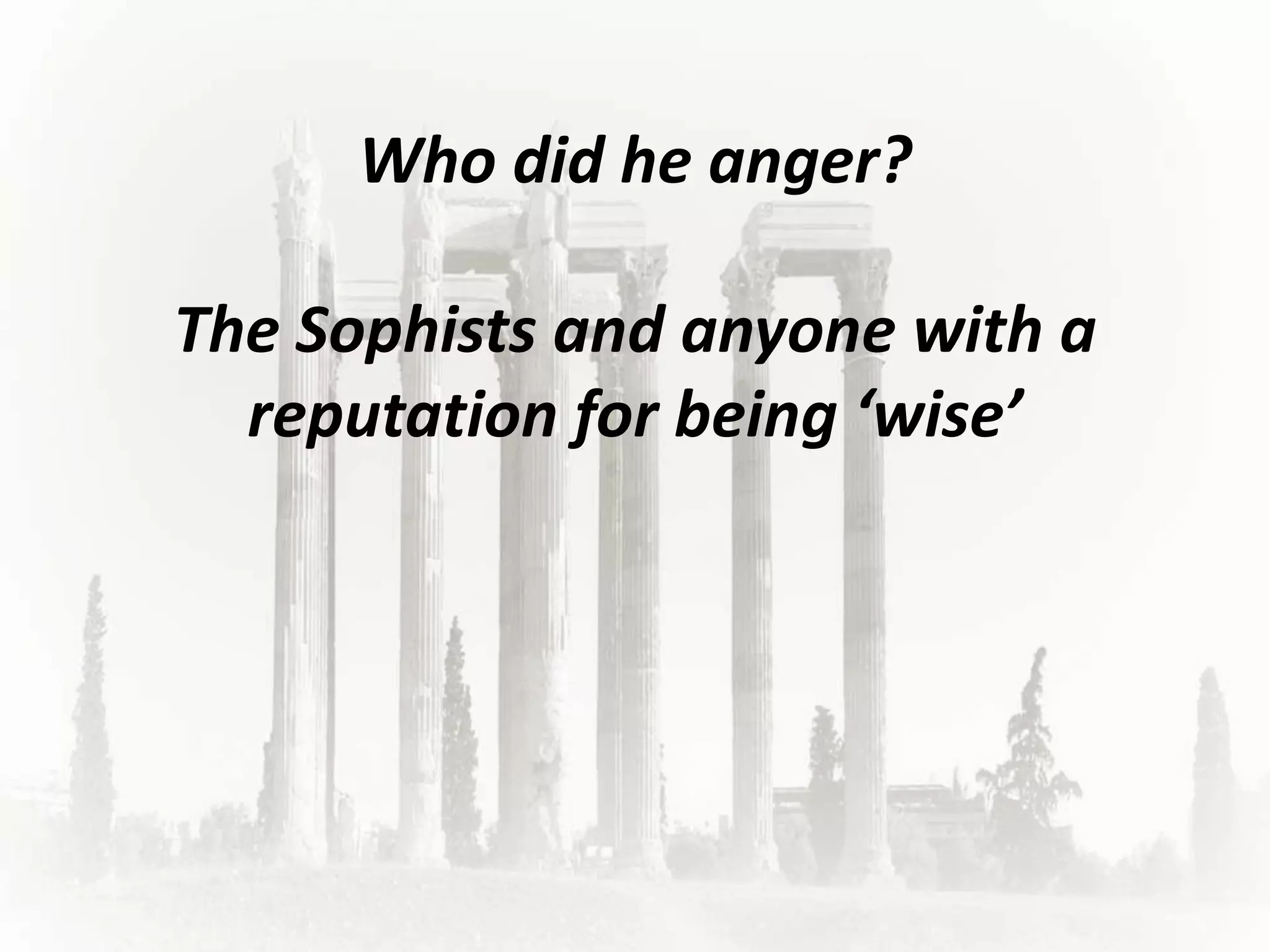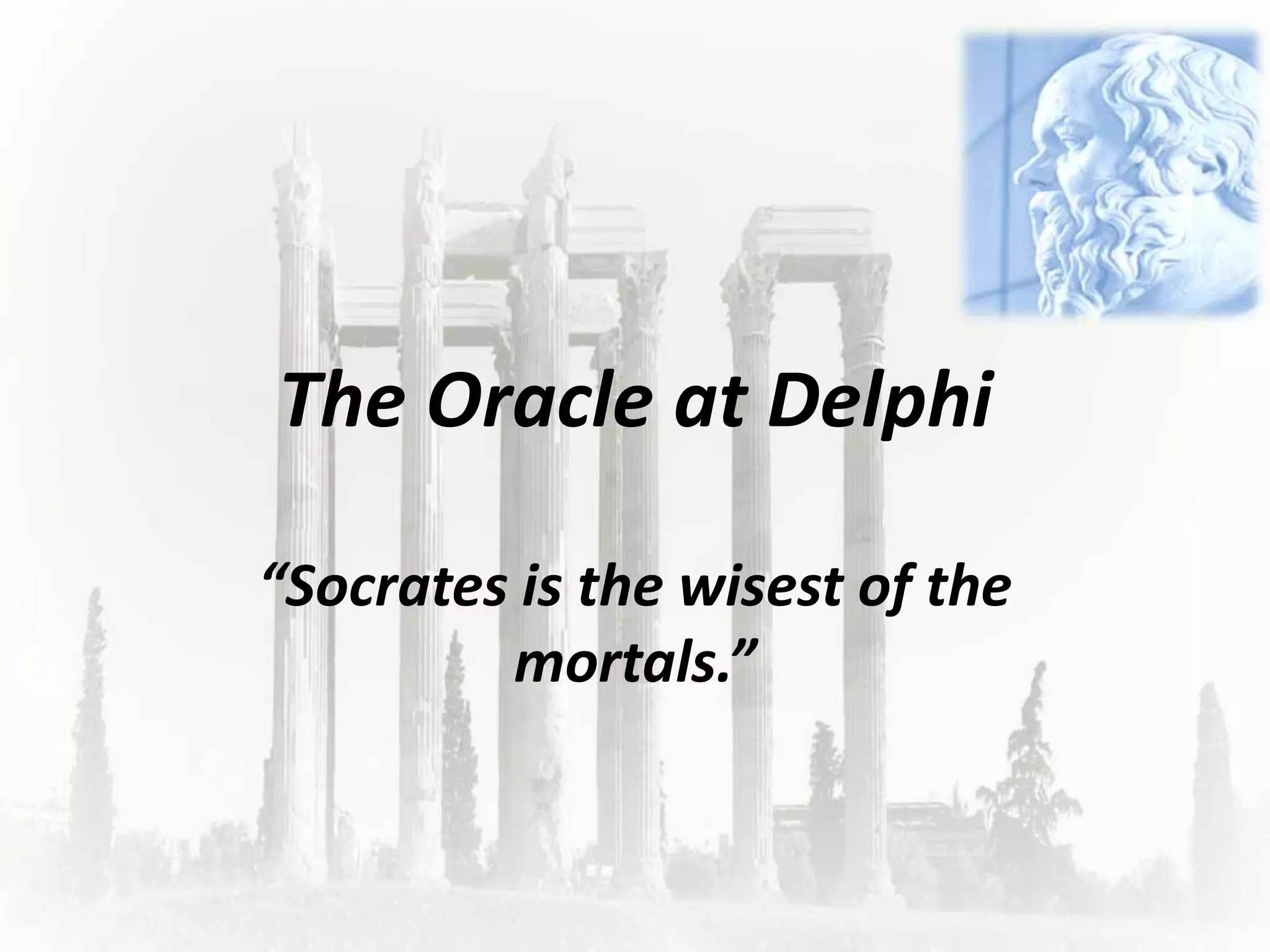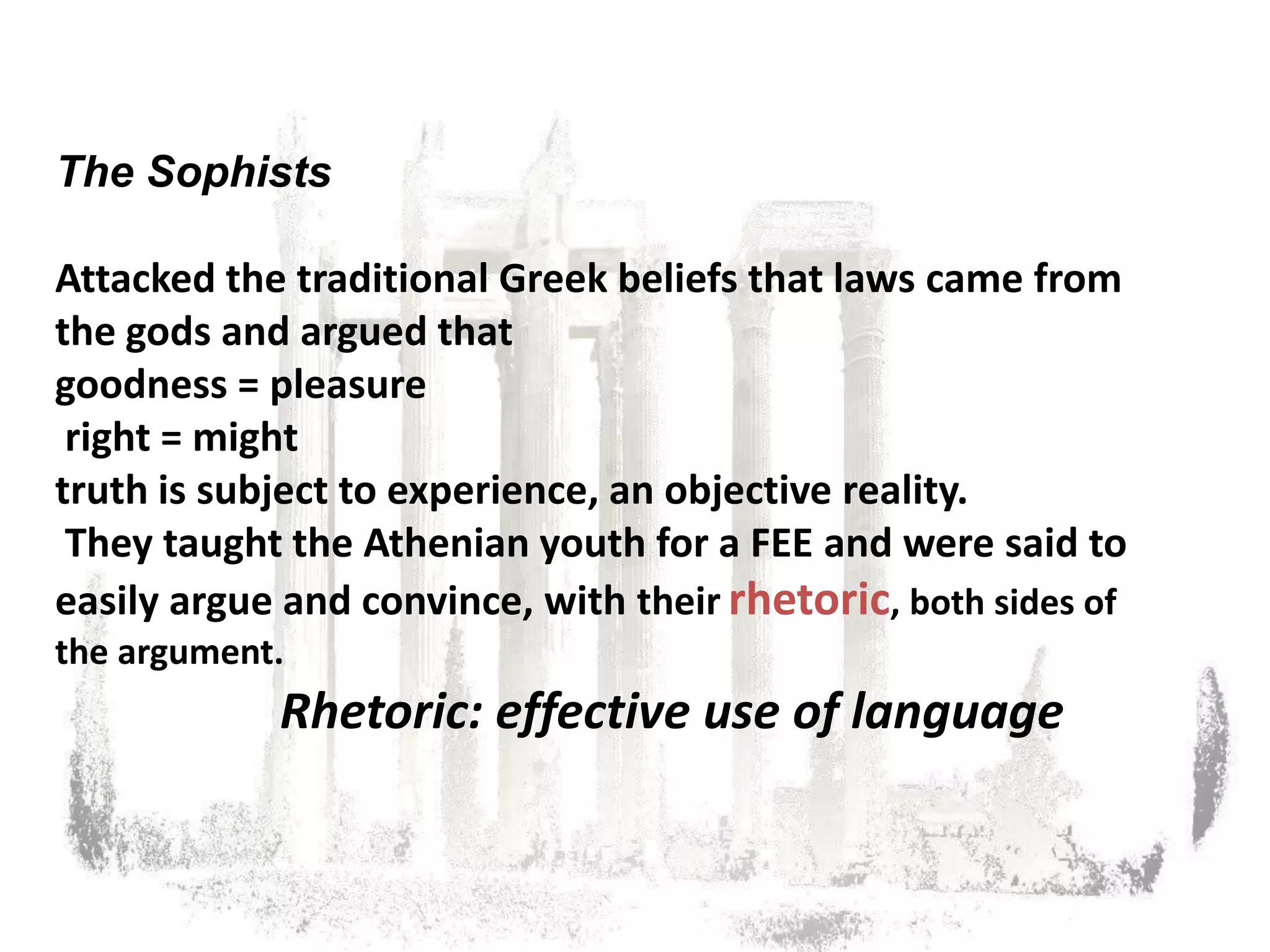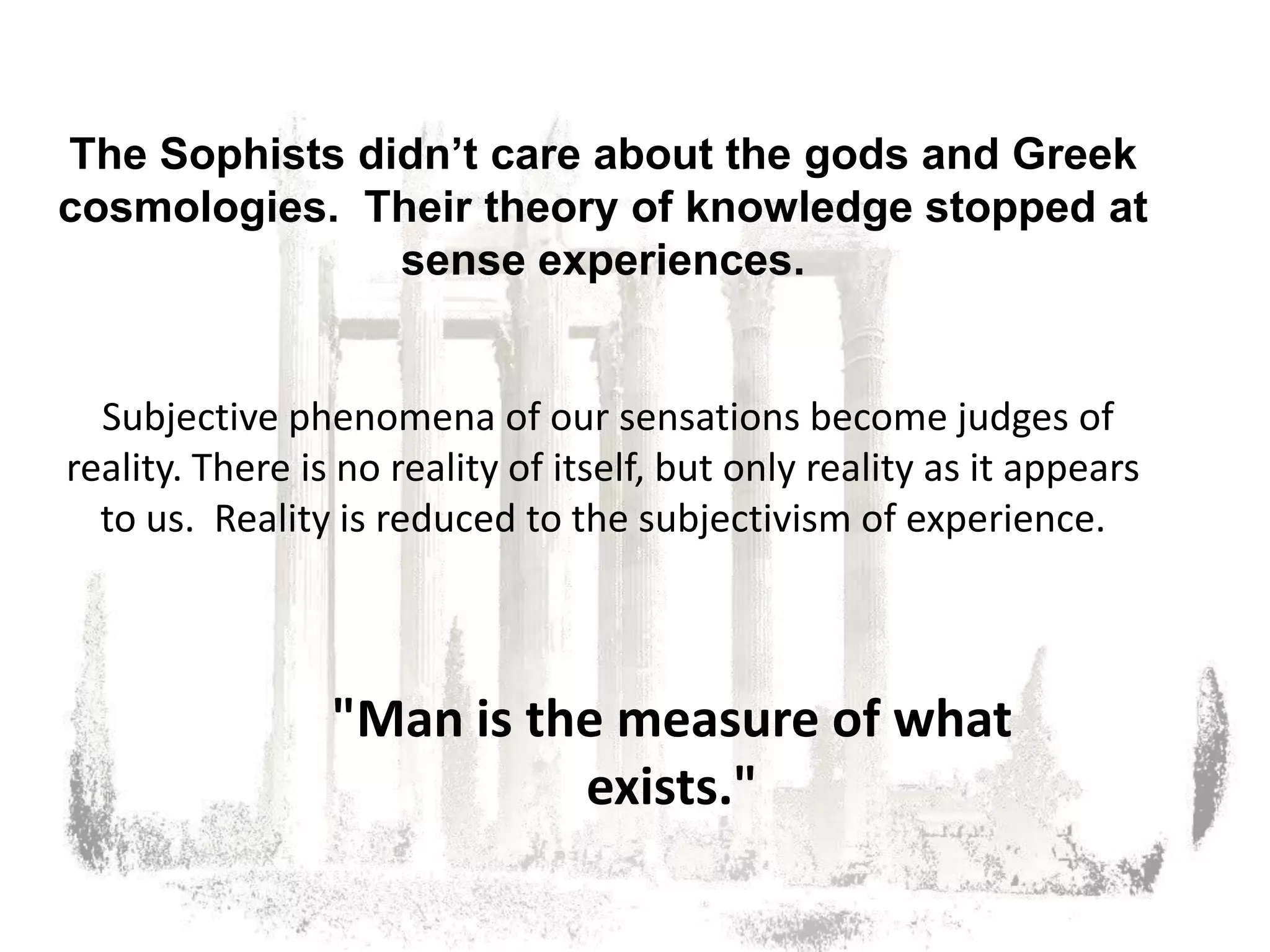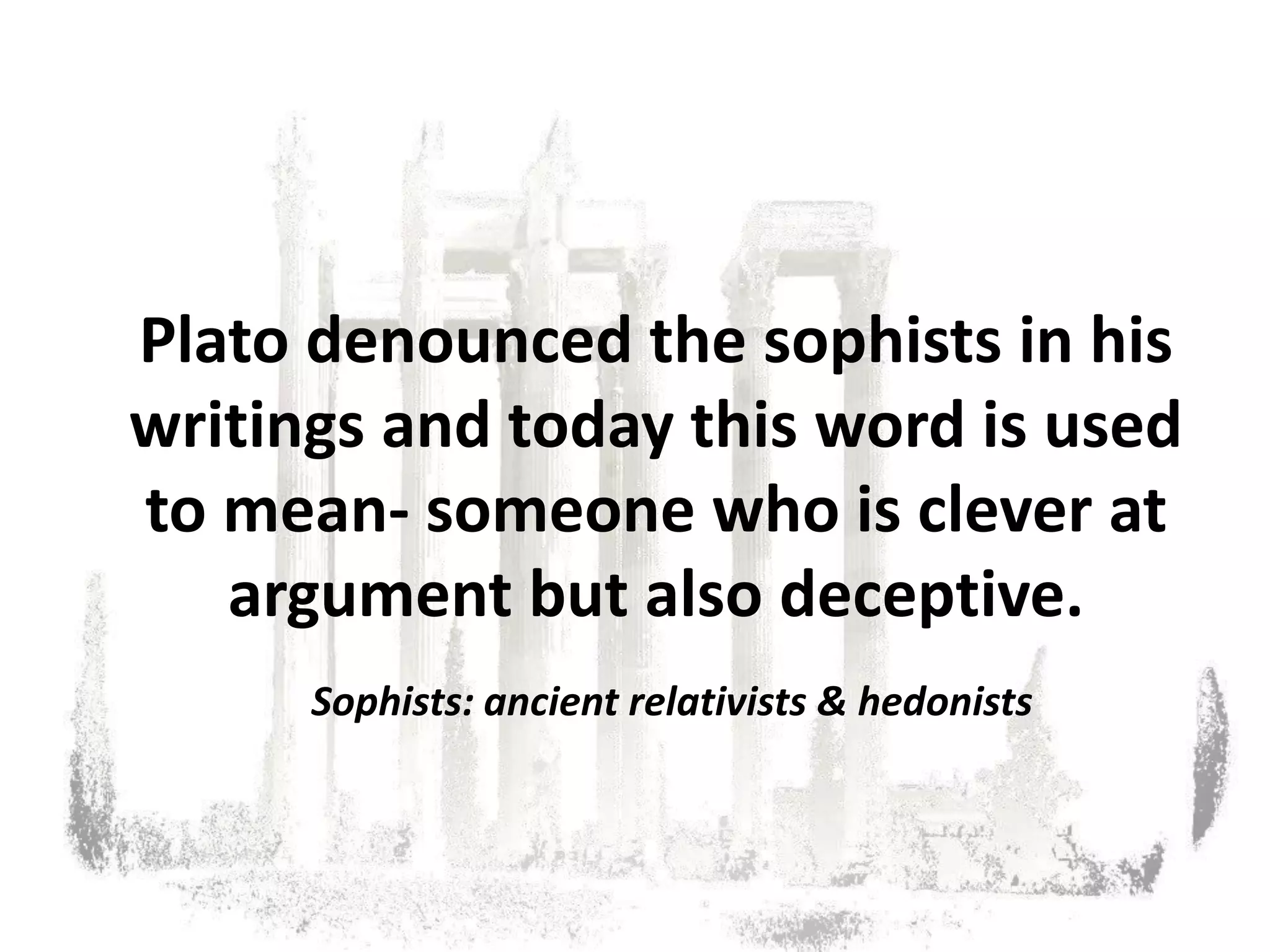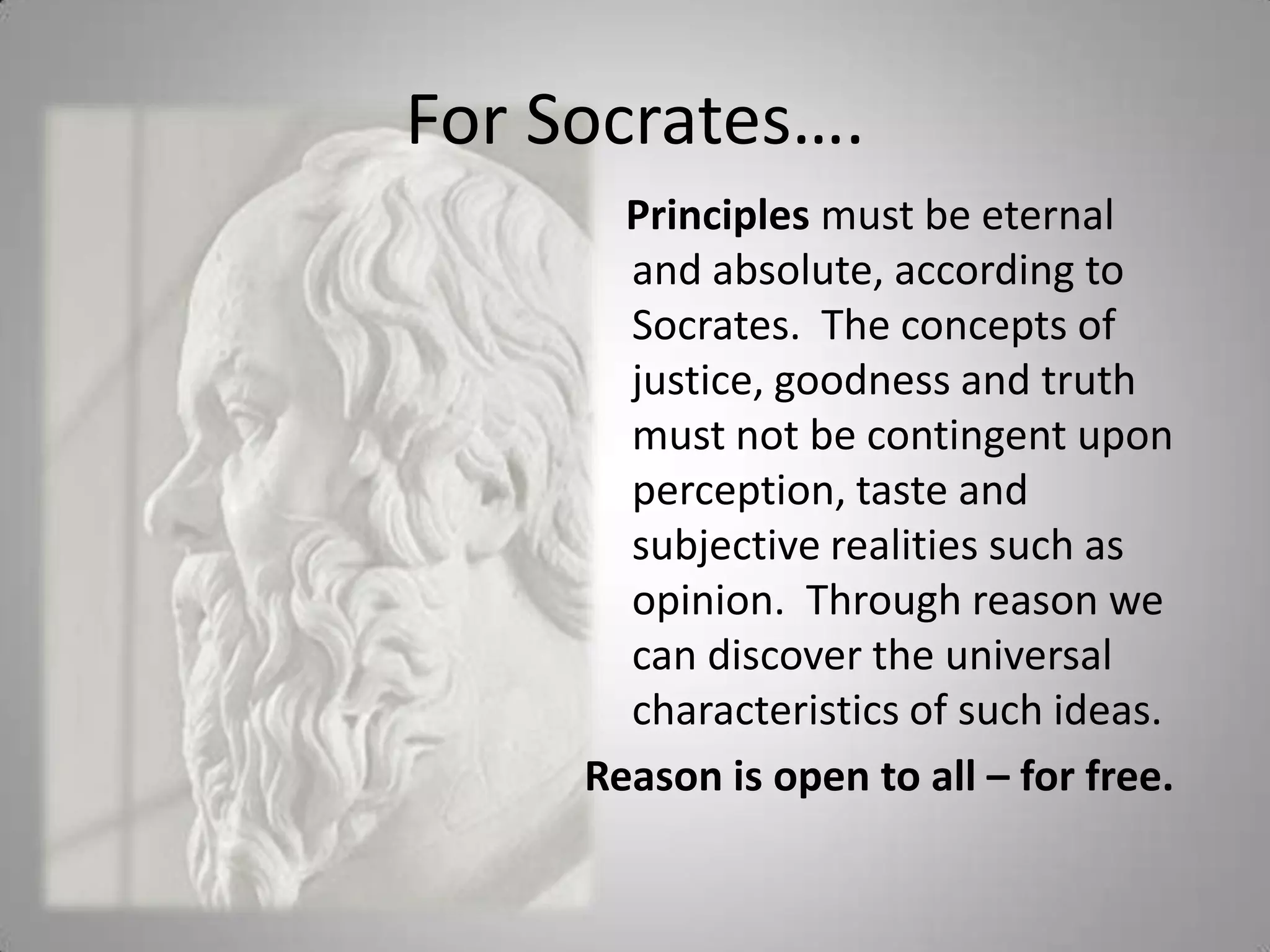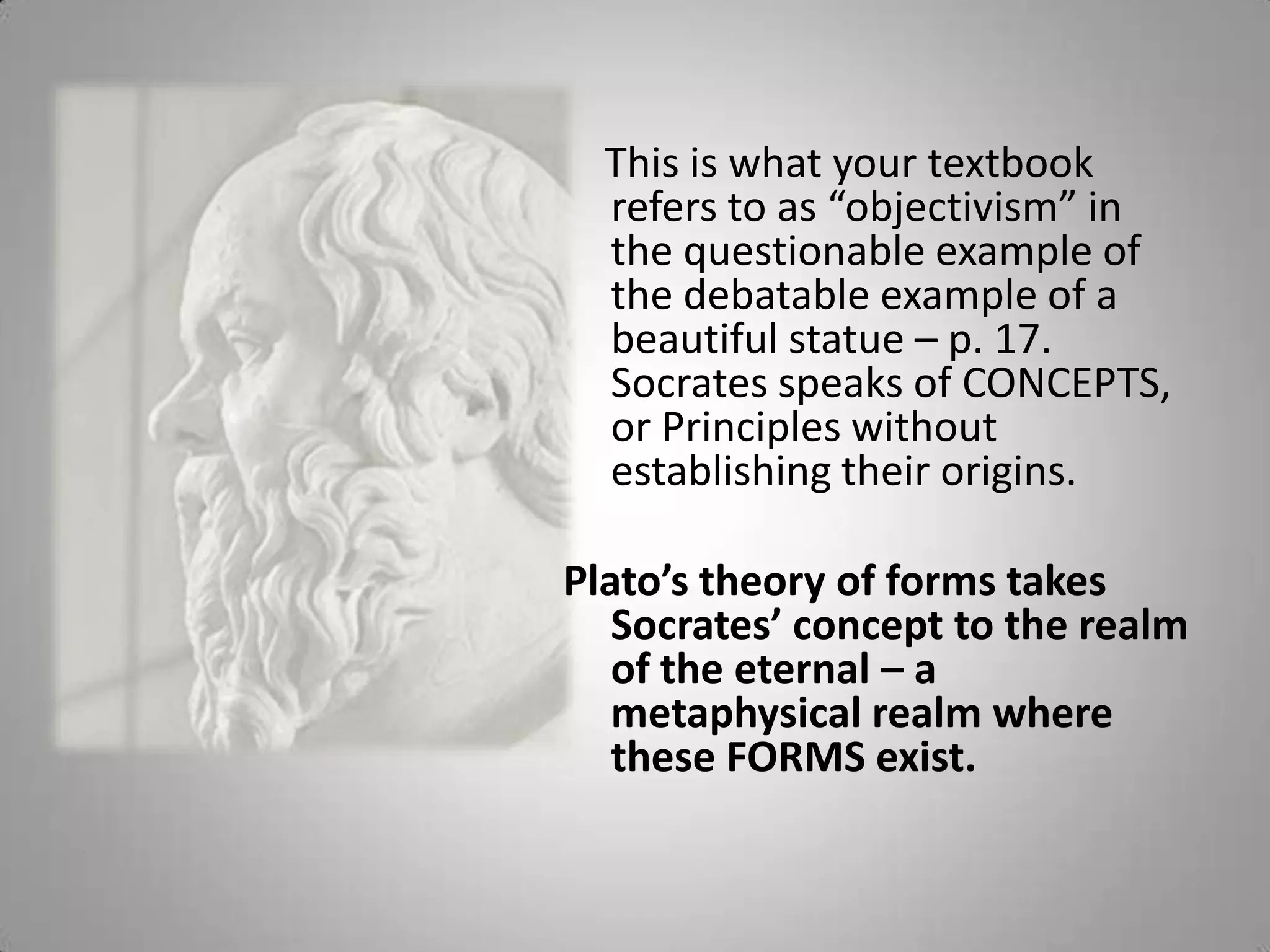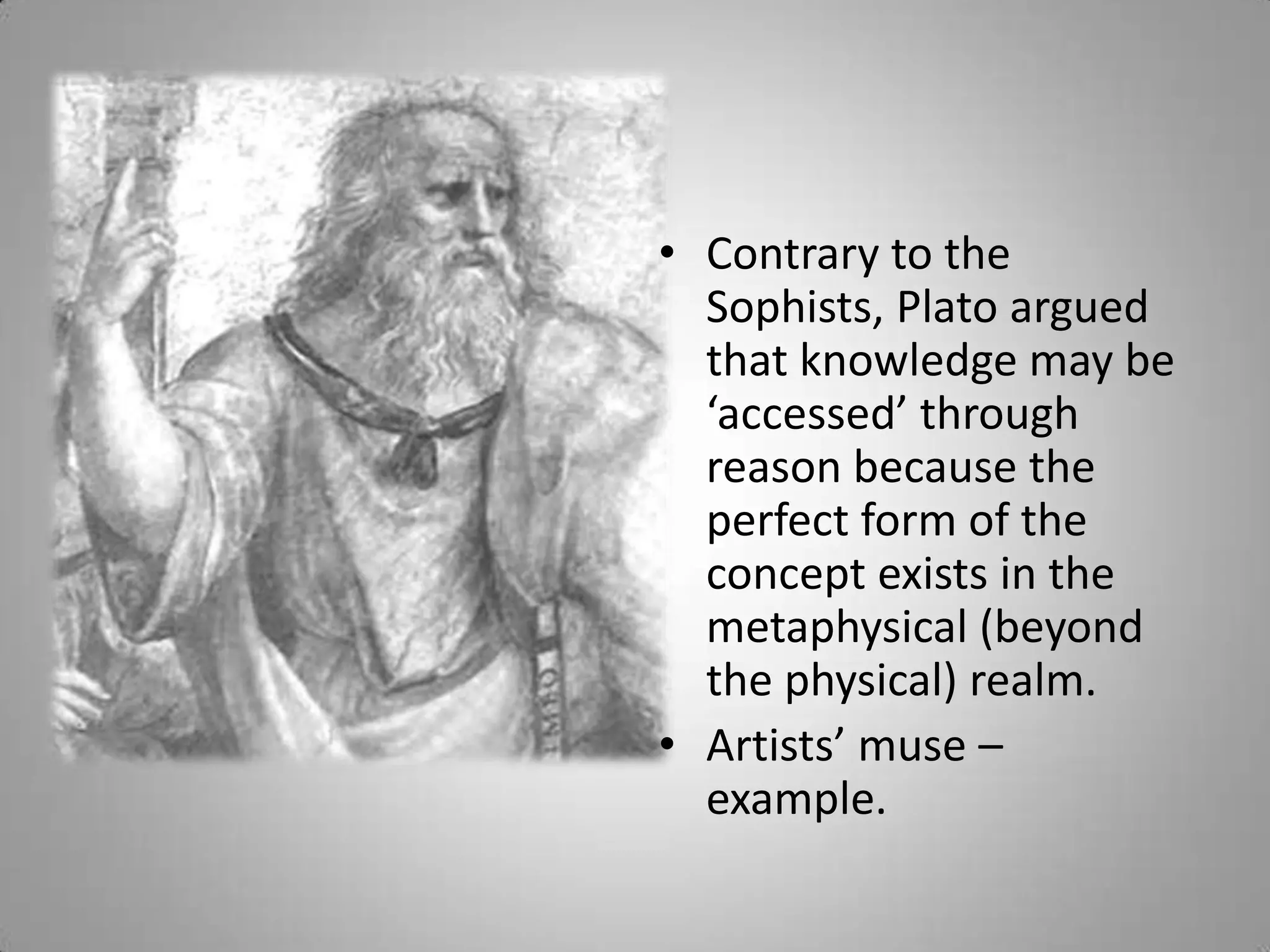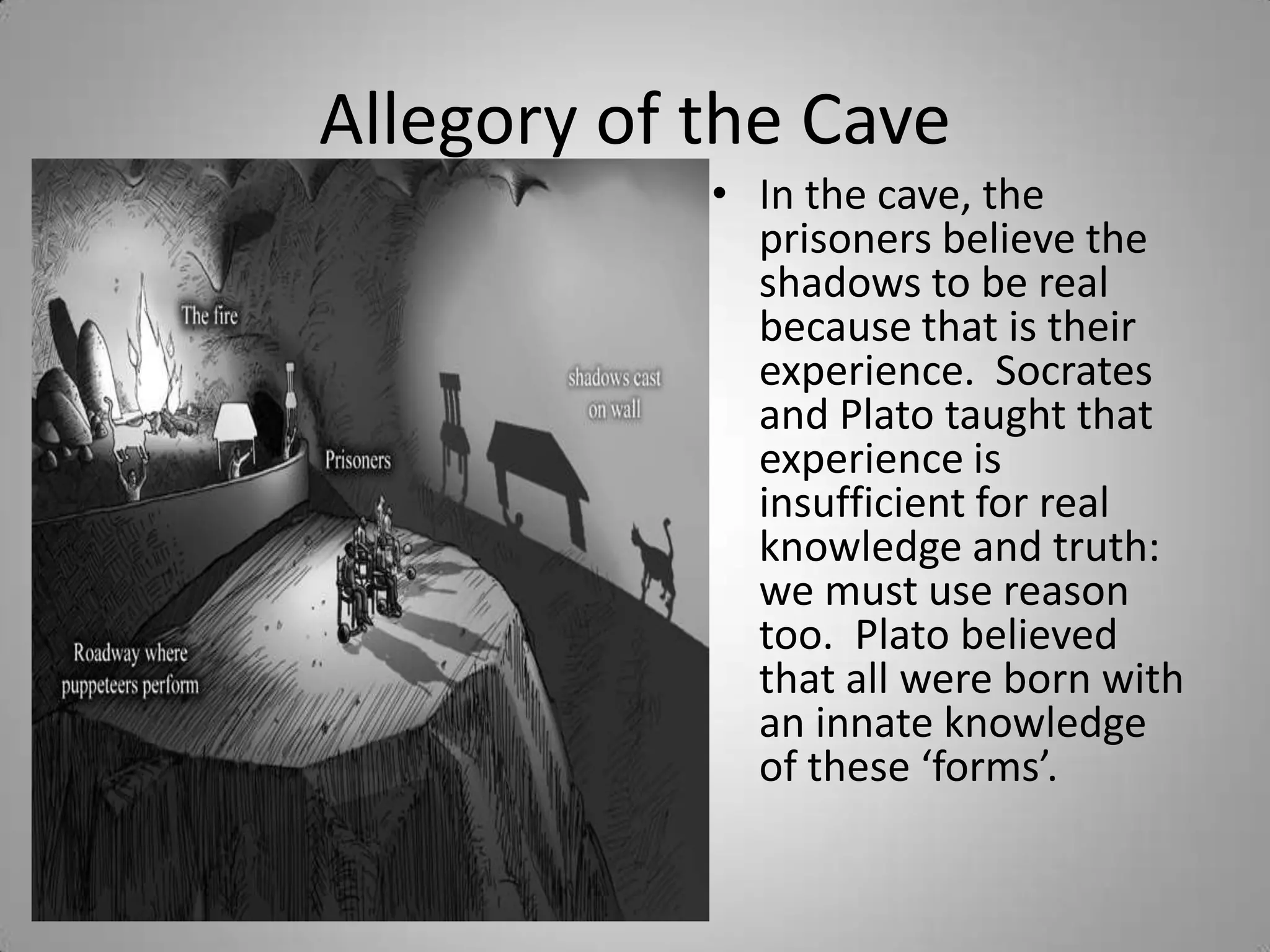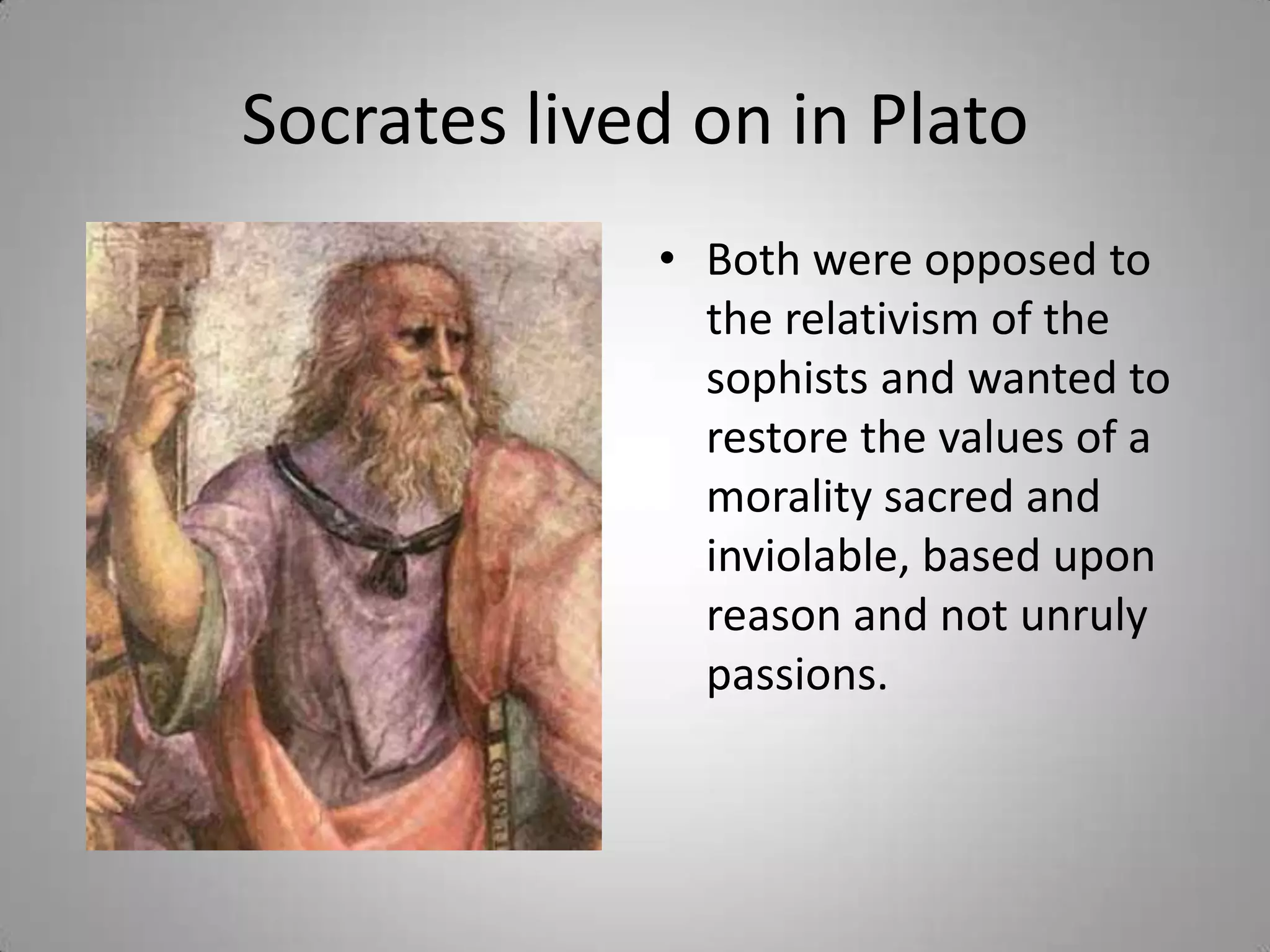Socrates was a famous philosopher in ancient Greece who is considered the father of western philosophy. Though he never wrote anything down, his student Plato documented their conversations. Socrates was accused of corrupting the youth and impiety, found guilty, and sentenced to death. He stood up for his principles against the Sophists, who argued that truth was subjective based on experience rather than objective forms discovered through reason. Plato further developed Socrates' ideas by proposing a metaphysical realm of eternal forms that provided the perfect concepts of justice, goodness, and truth.
